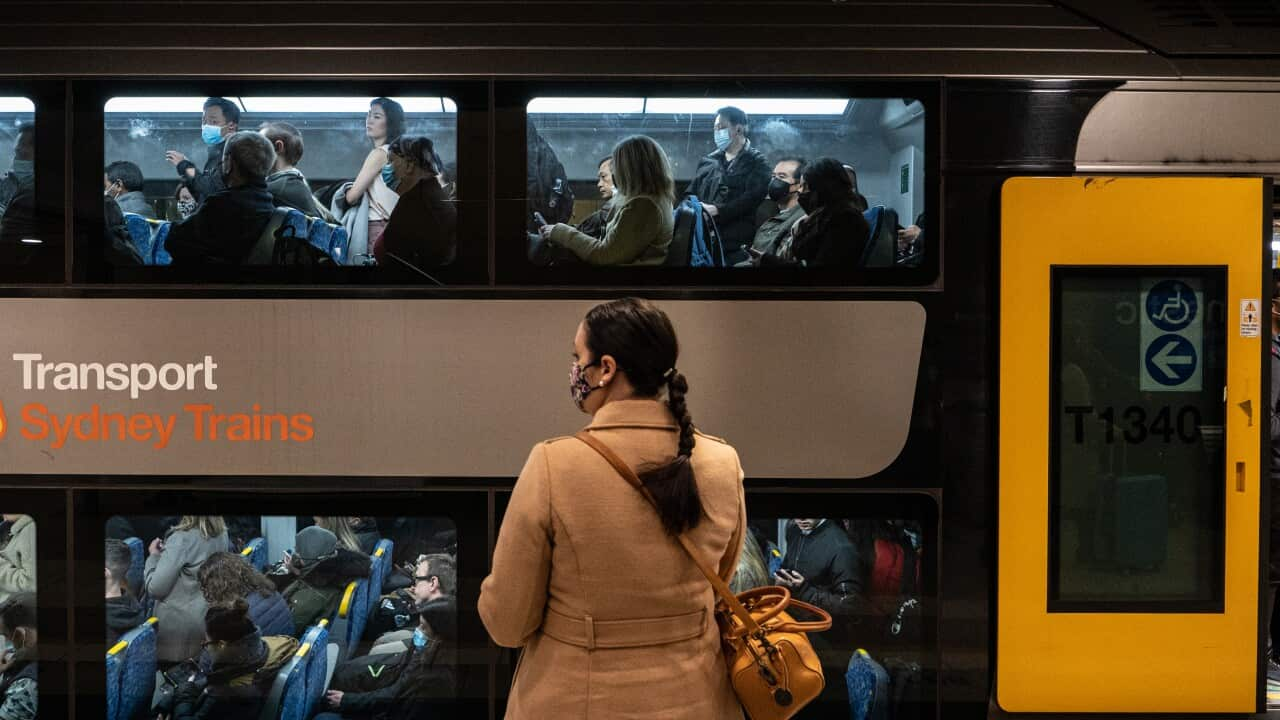Research shows 90 per cent of women from minority backgrounds have been harassed in public
- Research shows 90 per cent of women from minority backgrounds have been harassed in public
- A new campaign aims to reduce street harassment by teaching those who witness it how to safely intervene.
Ruvimbo Togara has been harassed by strangers in public more times than she can count.
But the 26-year-old youth worker says one recent incident stands out in particular.
"I was waiting for my tram to go back home, and as I was waiting, there was a man who was saying a lot of racial slurs, and as I was about to cross the road to catch my tram, he spat in my hair," she told SBS News.
"I felt really disgusted, first of all, because I got my hair spat on. But at the same time, I felt really unsafe because I didn't know what this person was capable of doing, or whether he was going to physically harm me."
Despite a lot of people witnessing the incident, no-one stepped in.
"It would have been great for somebody to intervene or to ask if I am okay after that," she said.
Stories like Ms Togara's are all too common, with conducted by market research company Ipsos finding 78 per cent of women in Australia have experienced harassment in public spaces.
That rate rises to 90 per cent among women who identify as being members of at least two minorities – including those who are Indigenous, in another racial minority, have a disability, are part of the LGBTQI+ community, or earn a very low income.

Ruvimbo Togara is one of six youth activists involved in teaching people how they can safely intervene if they witness street harassment. Source: Supplied
Dr Bianca Fileborn, senior lecturer in Criminology at the University of Melbourne, said one reason people may not intervene is that they don't actually realise it's happening.
"A lot of these behaviours can actually be quite subtle or ambiguous in nature, so it's not always clear to someone who's looking on that there's something that requires intervention," she told SBS News.
"Another issue is that people might not actually know how to intervene or how to intervene safely, so that can create a huge barrier to doing something."
Dr Fileborn said some may also not see it as their responsibility to intervene.
"We know that there's something called the bystander effect, where, particularly if there's a lot of other people around, there's this assumption that someone else will step in and do something," she said.
Plan International Australia is aiming to change that through the Stand Up Against Street Harassment campaign, which was developed by cosmetics company L'Oreal Paris and US-based NGO Right to Be.
The girls' rights charity is delivering - led by six youth activists including Ms Togara - about how to respond to street harassment without escalating the situation.
"It uses this methodology called the 5Ds which are: distract, delegate, document, direct, and delay," Plan International Australia chief executive Susanne Legena told SBS News.
"If you don't want to intervene directly maybe you can document what's going on and you can report it to the police or authorities? If you're a person who feels a bit nervous about doing that you might be able to intervene and delay what's going on or just stand between someone who's being harassed."
Associate Professor Nicole Kalms, director of Monash University's XYX Lab, said she sees the campaign as an opportunity to raise awareness and challenge the biggest problem with sexual harassment - the normalisation of it.
"Women even themselves have come to expect to be sexually harassed," she told SBS News.
"Young women, in particular, see it as a completely expected thing that they have to navigate in city spaces."
While bystander intervention plays an important role in stopping sexual harassment, Dr Fileborn said more needs to be done to address the root causes of the problem.
"Ultimately, we need to be targeting the behaviours and the actions of men who are engaging in these behaviours and challenging those social attitudes and norms that normalise and excuse street harassment in the first place," she said.
"That's really going to involve much longer-term responses, so things like education in schools, community education, and awareness-raising campaigns."



